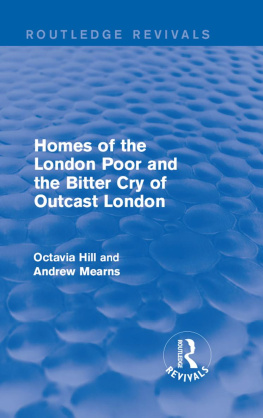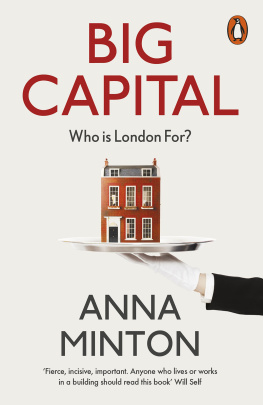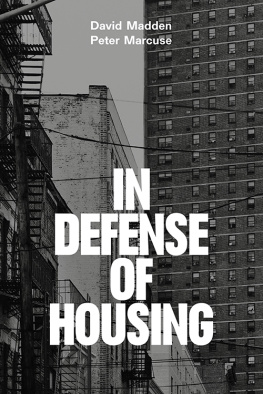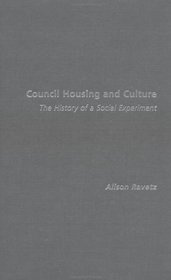Routledge Revivals
Homes of the London Poor and The Bitter Cry of Outcast London
First published together in 1970, this study collects two essays on the housing situation of London in the nineteenth century. Homes of the London Poor was first published in 1875 and written by Octavia Hill, the granddaughter of the pioneer of sanitary reformation, Dr. T. Southwood Smith. Influenced by his work and by Christian socialism, she aims to outline the housing problems in London present in her lifetime and how reformation could help those in need of affordable and sanitary housing. The second text comes from a pamphlet written by Andrew Mearns in 1883 which highlights the overcrowded and unsanitary housing conditions that were still a major issue eight years after Hills work was published. Both works together present a clear picture of the appalling conditions the poor and homeless were forced into in Victorian London. This title will be of interest to students of history and social work.
Homes of the London Poor and The Bitter Cry of Outcast London
Octavia Hill and Andrew Mearns
First published in 1970
by Frank Cass & Co. Ltd
This edition first published in 2016 by Routledge
2 Park Square, Milton Park, Abingdon, Oxon, OX14 4RN
and by Routledge
711 Third Avenue, New York, NY 10017
Routledge is an imprint of the Taylor & Francis Group, an informa business
1970 Frank Cass & Co. Ltd
All rights reserved. No part of this book may be reprinted or reproduced or utilised in any form or by any electronic, mechanical, or other means, now known or hereafter invented, including photocopying and recording, or in any information storage or retrieval system, without permission in writing from the publishers.
Publishers Note
The publisher has gone to great lengths to ensure the quality of this reprint but points out that some imperfections in the original copies may be apparent.
Disclaimer
The publisher has made every effort to trace copyright holders and welcomes correspondence from those they have been unable to contact.
A Library of Congress record exists under LC control number: 75884913
ISBN 13: 978-1-138-19230-0 (hbk)
ISBN 13: 978-1-315-63999-4 (ebk)
HOMES
OF
THE LONDON POOR
Octavia Hill
and
THE BITTER CRY OF OUTCAST LONDON
An Inquiry into the Condition of the Abject Poor
Andrew Mearns
With a note on the authors
by W. H. Chaloner
Published by
FRANK CASS AND COMPANY LIMITED
67 Great Russell Street, London WC1B 3BT
Homes of the London Poor |
First published | 1875 |
Second edition | 1883 |
New impression
of Second edition | 1970 |
The Bitter Cry of Outcast London |
First published | 1883 |
New impression | 1970 |
ISBN 0 7146 2419 5
Printed in Great Britain by Clarke, Doble & Brendon Ltd.
Plymouth and London
A NOTE ON HOMES OF THE LONDON POOR
Octavia Hill (18381912), grand-daughter of the pioneer sanitary reformer, Dr. T. Southwood Smith, came under the influence of the Christian Socialists and John Ruskin in her early teens and by 1864 had developed a profound interest in improving the dwellings of the London poor. Supported by influential and wealthy friends she became a housing manageress in 1865, buying the leases of slum properties and gradually rehabilitating both houses and occupants. Very soon she was appointed by the Ecclesiastical Commissioners to manage the greater part of their properties in Southwark. She became a member of the Charity Organisation Society and took an active part in propaganda for R. A. Crosss Artizans Dwellings Act of 1875. In that year five magazine articles which she had written were published in pamphlet form under the title Homes of the London Poor, and were translated into German by Princess Alice of Hesse. This was Miss Hills best-known work and the second enlarged edition is now made available again after having been extremely difficult to consult for many years.
A NOTE ON THE AUTHORSHIP OF THE BITTER CRY OF OUTCAST LONDON
Although there has been considerable uncertainty and confusion about the authorship of The Bitter Cry of Outcast London (1883), it is now clear that this powerful and influential pamphlet was written by the Rev. William Carnall Preston (18371902), a Congregational minister with experience in Wigan at the height of the Lancashire cotton famine, who had also been a newspaper editor for three years (186770). The Rev. Andrew Mearns (18371925), secretary of the Congregational Union, undertook the field work on which the pamphlet is based, in the summer of 1883, assisted by the Rev. James Munro. The resulting data were then handed over to the Rev. W. C. Preston, presumably because of his expertise as a journalist, and by the autumn he had fully justified the Unions decision by writing a vivid pamphlet on the slums of central London which had an immediate and fruitful impact on public opinion. Evidence of the authorship and influence of The Bitter Cry are set forth in P. dA. Jones, The Christian Socialist Revival, 18771914 (1968), pp. 41318; S. H. Mayor, The Churches and the Labour Movement (1967), p. 56; and K. S. Inglis, Churches and the Working Classes in Victorian England (1963).
January, 1970
W.H.C.
HOMES
OF
THE LONDON POOR.
BY
OCTAVIA HILL.
A NEW EDITION.
CONTENTS.
(Fortnightly Review, November, 1866.)
(Macmillans Magazine, July, 1869.)
(Macmillans Magazine, October, 1871.)
(Macmillans Magazine, October, 1872.)
(Report to Local Government Board, January, 1874.)
(Macmillans Magazine, June, 1874.)
(Macmillans Magazine, August, 1875.)
IN reprinting at this time articles describing any scheme for improving the dwellings of the poor, the first thought which suggests itself is, how the question is likely to be affected by the Artisans Dwellings Bill, which is before the Houses of Parliament, more especially as one of the articles in this book was written in the earnest hope and expectation that some such measure would shortly be brought before the Legislature.
Two principal objections have been made to the Bill. First, the costliness of its procedure. Everyone must desire to see this reduced to the minimum; but where compulsory powers are taken under any Act, many safeguards are, I believe, required, and these imply expensive processes. One can only hope that in this case they will be reduced as far as possible. But there has been a good deal said about the impropriety of supplying a large class of the people with a necessary of life, such as lodging, at a price which is not remunerative.
I enter more deeply, perhaps, than most of the objectors themselves into the full weight of this objection, and most heartily hope that whatever is done in building for the people may be done on a thoroughly sound commercial principle. I do not think it would help them the least in the long run to adopt any other principle; in fact, I believe it would be highly injurious to them.










